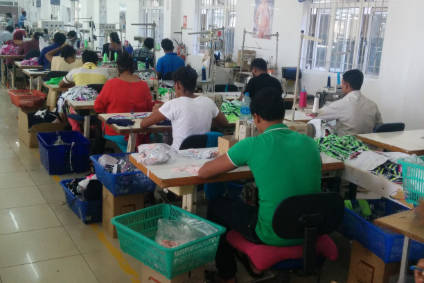
An online tracker launched last month to monitor the response of leading apparel and footwear brands and retailers to their suppliers and workers during the coronavirus crisis, has been updated to show some are still refusing to make no commitment to pay in full for orders completed and in production.
The online ‘Covid-19 Brand Tracker‘ has been created by the Worker Rights Consortium (WRC) in association with Penn State’s Center for Global Workers’ Rights (CGWR).
The list now shows Asos, LPP, Lululemon Athletica, Next, Tesco, Under Armour and VF Corp (JanSport, The North Face, Vans, Timberland) have committed to pay in full for orders completed and in production.
They join Adidas, H&M, Inditex (Zara), Kiabi, Marks & Spencer, Nike, PVH (Calvin Klein, Tommy Hilfiger), Target and Uniqlo who were among the first to make the same pledge.
But the companies that have still made no commitment to pay in full for orders completed and in production include Arcadia (Topshop), Bestseller, C&A, Edinburgh Woolen Mill (Bonmarché, Peacocks), Gap (Old Navy, Athleta, Banana Republic), JCPenney, Kohl’s, Li & Fung/Global Brands Group, Mothercare, Primark, Sears, The Children’s Place, and Urban Outfitters (Anthropologie).
The research also criticises Ross Stores for reneging on its commitments to factories; Bestseller for imposing partial order cancellations and retroactive price cuts across its supply chain; Walmart subsidiary Asda for “abandoning suppliers” of its George fashion range; and Primark for failing to honour its obligations in full.
The information used to compile the listings is based on public statements, direct correspondence with the WRC and/or CGWR, and information provided by country-level supplier associations as well as individual suppliers.
The WRC and CGWR acknowledge that Covid-19 has meant a huge drop in demand for apparel, creating financial challenges for brands and retailers. But they also say corporations have a duty to manage the crisis responsibly.
Many brands and retailers have cancelled or put orders on-hold, or are demanding retroactive price reductions, for goods already in production or completed and ready to ship. In some cases, brands have demanded large rebates, even on orders already in transit from the supplier.
Retroactively cancelling orders on which suppliers have already incurred millions of dollars in costs imposes immense financial damage and is leading to large-scale dismissals of workers, often without legally-mandated severance or furlough pay.



